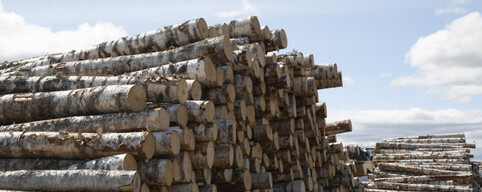

The ongoing trade dispute between the United States and Canada over softwood lumber has taken a significant turn with accusations being levied by the U.S. against Canada's industry practices. The U.S. claims that Canada's softwood lumber sector is engaged in unfair trade practices that adversely affect American producers, workers, and the broader community.
The U.S. Department of Commerce's recent evaluations have shed light on these alleged unfair trade practices. The Department asserts that Canada's conduct in the lumber industry has worsened, potentially escalating to new trade duties. This concern arises from the suggestion that Canadian practices are creating an uneven playing field, disadvantaging U.S. lumber manufacturers who struggle to compete against government-subsidized Canadian imports.
This situation impacts local communities where lumber is a critical part of the economy. With reduced competitiveness due to what the U.S. deems as subsidized Canadian products, American lumber producers may face job losses and economic setbacks. The ripple effect could be profound, affecting not just companies and workers in the industry but also the communities that rely on the economic activity generated by lumber production.
Financial repercussions are imminent, with estimates suggesting Canada's actions could incur liabilities upwards of $1.3 billion for 2023 alone. This arises as a corrective measure should the U.S. proceed with imposing more stringent duties on Canadian lumber to equalize pricing disparities.
However, the path to resolving these tensions seems fraught with challenges as Canada appears reluctant to accept full accountability for these practices.
Canada's approach to these accusations points towards advocating for different avenues to tackle the issue. There have been suggestions of Canada's possible outreach to U.S. leadership, proposing alternative methods to address and resolve the conflict outside traditional frameworks.
As tensions persist, the implications for the lumber market are significant and multifaceted, encompassing financial liabilities and broader economic impacts across bordering countries.
At the core of the U.S. Lumber Coalition's accusations are claims that Canada is attempting to transfer the financial burden to the U.S. taxpayer, thereby sidestepping direct consequences from these trade practices. Critics argue that Canada's strategy might involve seeking relief or concessions from the U.S. administration rather than reforming its subsidy-driven approach.
This conjecture is compounded by the allegations of Canada potentially requesting a bailout from the U.S., which could alleviate the immediate stress on Canada's industry but undermine efforts to rectify underlying trade disparities. Such a move, if substantiated, could provoke further backlash from U.S. stakeholders who view any such bailout as an inappropriate remedy to an entrenched issue within the Canadian lumber sector.
The Lumber Coalition highlights the necessity for firm U.S. policy approaches to ensure these trade practices are adequately addressed, protecting domestic industries from undue harm caused by international practices perceived as unfair. This ongoing dispute emphasizes the delicate balance required in trade relations, necessitating careful navigation to uphold equitable competition.
In conclusion, the developments between the U.S. and Canada over softwood lumber trade highlight larger conversations on trade fairness and accountability. As both countries grapple with potential economic consequences and seek resolutions, the outcome of this dispute could set significant precedents for handling international trade conflicts in the future. For now, stakeholders from both sides are engaged in a complex dialogue with substantial economic interests at stake.



